
Remembering Cannon’s brief flirtation with the big time
Nothing encapsulates 80s excess like Golan-Globus. With Cannon Films facing bankruptcy at the turn of the decade, Israeli cousins Menahem Golan and Yoram Globus would purchase the then modest production company with the intent of buying the rights to bottom rung scripts and turning them into commercial breadwinners. In an era of home video oversaturation, they embraced a lawless canvas of multi-genre madness that was unprecedented, going from chancers to semi-serious players with a plethora of half-baked concepts that proved as charming as they were fascinating.
It’s hard to pin down peak Cannon in terms of genre output. Like any low-end production company looking to turn a profit during the early 80s, their entry point was the hugely popular slasher genre, but a slew of underwhelming efforts such as Schizoid, New Year’s Evil and Hospital Massacre quickly put an end to that venture, leading to one of the most cavalier production processes the industry has ever known. As passionate about making movies as he was clueless, Menahem Golan would sell films based on a poster, often inventing characters and storylines on the fly. It didn’t matter if production went over budget or if screenplays didn’t make much sense. Cannon were in the movie-making business, and movies they would surely make.
During their Golan-Globus apotheosis, Cannon would try their hand at horror, sci-fi, exploitation, period drama, comedy and even musicals, releasing such commercial oddities as The Happy Hooker Goes to Hollywood, Breakin’ 2: Electric Boogaloo and Hard Rock Zombies. They would even produce some films of critical acclaim, 1985‘s Runaway Train, a movie devised by legendary Japanese filmmaker Akira Kurosawa, bagging three Golden Globe awards, a Palme d’Or nomination and three Academy Award nominations for Best Actor (John Voight), Best Supporting Actor (Eric Roberts) and Best Film Editing (Henry Richardson), rubbing shoulders with the likes of William Hurt, Harrison Ford and Jack Nicholson. But for all their exploits, it was the action genre that became their calling card. In fact, of the 29 movies produced by Golan-Globus in 1985 alone, Runaway Train was one of their biggest financial flops, while American Ninja, a cheapjack B-movie that tapped into the martial arts craze of the 1980s, proved one of their most successful.
Golan-Globus had sparked America’s newfound obsession with martial arts movies post Bruce Lee, whose premature and mysterious death in 1973 brought the genre to a devastating halt on mainstream shores. Achieving moderate success by casting Italian film veteran Franco Nero alongside Shô Kosugi in 1981‘s Enter the Ninja, Cannon would quickly westernise their product, creating stars such as Michael Dudikoff and Steve James as marital arts conquered the mainstream. With consumers raiding rental stores like kids on a candy rush, demand for low-budget action movies had never been higher, and with the help of cute taglines and eye-catching poster designs, film fans were willing to consume pretty much anything filmmakers threw at them as they basked in the novelty of home viewing convenience. But if Cannon were to truly make an impact, recognised mainstream stars were needed, and signing on for the increasingly fruitful Golan-Globus model was a no-brainer for veteran actors looking to stay relevant.

Western stalwart Charles Bronson was Cannon’s original go-to guy after the cousins bought the rights to urban vigilante movie Death Wish, a property that was crying out for the franchise treatment in the era of the sequel. Former Bruce Lee protégé Chuck Norris was soon added to the fray. Though turning down the lead in the original American Ninja (he refused to have his face covered during filming), Norris would instead star in glorious Cannon fodder such as Missing in Action and The Delta Force. He would even treat us to a woeful, if highly amusing Harrison Ford impression in Indiana Jones-come-Romancing the Stone rip-off Firewalker. Though much of Cannon’s zany output resulted in meagre returns, the likes of Death Wish II and Missing in Action would generate significant box office bucks, enough that Hollywood was beginning to take notice. Golan-Globus had a reputation as sleazy trash peddlers, and their most successful movies were a testament to that, but money talks, and it wasn’t long before the ever ambitious producers were reaching for the bigtime.
What I do is I just try to take my hat and I turn it around, and it’s like a switch that goes on. And when the switch goes on, I feel like another person, I feel, I don’t know, I feel like a… like a truck. Like a machine.
Lincoln Hawk
By the mid-1980s, Golan-Globus were thriving, but as much of a low-key draw were, the likes of Bronson and Norris, a truly marquee attraction was needed to elevate them beyond the B-movie doldrums, and in Sylvester Stallone they found their perfect match. Cannon were in luck. Over at Paramount a little movie called Beverly Hills Cop was in development, and it was Sylvester Stallone, by that point a commercial titan to rival the best of them, who was initially set to star. Having received an Oscar nomination for best original screenplay with 1977‘s heartwarming smash Rocky, Sly was always hands-on when it came to making movies. If you were lucky enough to have him on board post-Rocky, you had star appeal in abundance, but you also had insider knowledge, a deep understanding of mainstream appeal and the kind of commercial savvy that saw him outmuscle fellow Hollywood titan Arnold Schwarzenegger for most of the 80s. Stallone famously rescued First Blood from production purgatory with the kind of creative input that transformed Rambo into a decades-long franchise, leading to action-packed, quasi-political sequels made in the Cannon vein, the Rocky series still going strong more than five decades later. Of course, it didn’t always go so swimmingly.
Stallone has confessed to developing an ungodly ego during his mid-80s pomp, which is only natural for a wealthy megastar who accumulated a large portion of his fortune during the decade of excess. The uncertainty surrounding Beverly Hills Cop was a prime example of the actor’s prima donna tendencies. Upon being offered the role, Stallone subjected an early version of the screenplay to a heavy re-write that eschewed much of the comedy for a straight-up action vehicle. He even had the name of Eddie Murphy’s Axel Foley changed to the rather familiar Axel Cobretti, but Stallone’s lavish vision was deemed too expensive, so the action star took his creative hegemony elsewhere.
Paramount’s loss was Cannon’s gain. Since they exclusively dealt with bargain-basement screenplays, Golan-Globus were more than happy to let superstar Sly have his way, offering him unprecedented fees in what was a creative and financial no-brainer. It was in light of these events that kitsch extravaganza Cobra came to fruition. Subjected to heavy edits by Warner Brothers before its release, it was nevertheless a Golan-Globus production, the movie fitting their inimitable formula to a tee, giving us a renegade cop who flew the red, white and blue for Reaganite America in an era of growing inner-city crime and media sensationalism.

With Stallone on board, Golan-Globus would cut a deal with Warner Brothers, who would come aboard as distributor, an agreement that would later see the likes of MGM and 20th Century Fox follow suit. The Warner Brothers stamp of approval could only help Cannon’s reputation in the eyes of a more conventional, mainstream audience. If the likes of an ageing Bronson and a strictly small-time headliner such as Norris could generate double and twenty times their budgets respectively, just imagine the amount of bacon someone of Sly’s soaring stature could bring in. To put it into perspective, Golan-Globus production Dangerously Close, released three weeks prior to Cobra, would recoup $2,026,765 from $1,500,000. That was typical for a bog-standard Cannon production, but the company had such an extraordinary output that they were able to chug along quite comfortably, and the odd financial gem would bolster Menahem Golan’s ‘make first ask questions later’ approach to filmmaking. With Sly as their marquee attraction, that changed almost overnight. Cobra would smash all Cannon box office records with a US Gross of $49,042,224 and an incredible worldwide gross of $160,000,000, resulting in a profit of approximately $135,000,000 for a single movie. This was music to the ears as recent branch-outs Highlander and Pirates each represented significant financial blunders. Thanks to Stallone, Cannon’s dream of smashing the mainstream was on the cusp of becoming a reality.
With Sly’s stardust having worked miracles, it was only natural that the two would reunite for another money-spinning foray, and they did so just a year later with maudlin, testosterone-pumped road drama Over the Top, a movie that cemented Cobra as a one-hit wonder and put a dent in the company’s decadent ambitions. When their biggest mainstream ventures Masters of the Universe and Superman IV: The Quest for Peace both tanked at the box office in the ensuing months, Cannon’s opulent punt at the big time was over before it had even got off the ground. Directed by Menahem Golan himself, Over the Top would add in-demand synth innovator Giorgio Moroder to its line-up. With Stallone on board to once again beef-up the screenplay, Cannon could be forgiven for expecting a second monster hit on their hands. Perhaps inevitably, it didn’t materialise, Cannon and the high-rolling Stallone quickly parting ways. Stallone would later admit to being unhappy with the film, citing several alterations that he would have made, including a change of setting and a darker Las Vegas finale. On his decision to sign on for the movie, Stallone would claim, “Menahem Golan kept offering me more and more money, until I finally thought, ‘What the hell — no one will see it!'” A ringing endorsement from the man at the helm.
Part of the reason for the movie’s lack of commercial clout has to be its ludicrous concept. While Cobra was a straight-up vigilante flick in the Charles Bronson vein, Over the Top tells the story of an arm wrestling truck driver attempting to reconnect with his son after years on the road. I don’t know about you, but the idea of greasy truckers doesn’t fill me with popcorn dreams. Call this mindless stereotyping, but when I think truckers I immediately think out of shape hillbillies; tobacco-chewing hogs; long, boring drives through desolate open landscapes on a diet of caffeine and amphetamines. I certainly don’t think action movie vehicle.
Conversely, musclemen were all the rage in 1987. Thanks to Hulk Hogan and wrestling promoter Vince McMahon’s commercial savvy, Wrestlemania III would set a (wildly exaggerated) indoor attendance record of 93,173 at the Pontiac Silverdome in Michigan a month after Over the Top made its way into theatres, which was presumably part of the motivation behind the creation of a real-life Over the Top tournament designed to coincide with the movie’s release, several arm-wrestlers and footage from the finals ultimately added to the movie. In fact, wrestlers Manny Fernandez and Sione Vailahi aka The Barbarian were flown in to appear in the movie until a drunken incident which saw the latter smash two beer glasses over his own head led to the authorities being called in. By all accounts, it was a pretty nasty scene.

As far as I can tell, the only reason Stallone plays a trucker, other than to give him an excuse for being absent for the past decade, is that it acts as a convenient way to delineate his character’s humility in the face of his father-in-law’s sterile wealth, a repugnance projected with consummate ease by the ever wonderful Robert Loggia, who has gobbled-up many a superior screenplay over the years, his turn as Miami Kingpin and Tony Montana stepping stone Frank Lopez immediately leaping to mind. In terms of supporting roles, Loggia was another huge coup for Cannon, and he is typically inspired as far as the screenplay allows, but this isn’t Oliver Stone’s Scarface. According to screenwriter David Engelbach, his original screenplay was nothing like the finished film, with less emphasis on both truckers and arm wrestling, and since the final cut almost exclusively focuses on truckers and arm wrestling, one can only imagine what might have been. So displeased was the writer at the sheer quantity of alterations made to the script that he remembers having tears in his eyes as the action unfolded before him, his tenuous reputation at stake. Hollywood can be so cruel.
I drive trucks, break arms, and arm wrestle. It’s what I love to do, it’s what I do best. Being number one is everything. There is no second place. Second sucks.
Bob ‘Bull’ Hurley
With his daughter having fallen seriously ill, Loggia’s lonely tycoon, Jason Cutler, wants Stallone’s Lincoln Hawks nowhere near his military cadet grandson, Michael, and who could blame him? Not only does Stallone spend his time hanging around with gaggles of braindead meatheads looking to pick fights for no particular reason, he plans to risk everything he has on a Vegas arm wrestling tournament ― not the best example to be setting a kid who has spent his entire adolescent life in private education, a youngster who has been trained to see his dad as a go-nowhere abandoner. In typical Golan-Globus fashion, the movie is brimming with inconsistencies. Despite spending their days sitting on their backsides swilling pitchers in bars, Stallone and his legions of cantankerous opponents are carved from granite, sporting physiques that require an insanely strict diet, years of dedicated training and a truckload of performance enhancing drugs. I mean, how many real-life truckers are blessed with such herculean physiques? Practically all of them if Cannon Films are to be believed.
Golan-Globus made a small fortune from ridiculous macho concepts that sat well with the Reagan 80s, but a movie based on arm wrestling seems like a hard sell, even back then. Pro wrestling adopts a similar musclebound platform, but it relies on pageantry and theatre to entertain, with staged matches that are carefully designed to tell stories and create drama. When it comes down to it, arm wrestling is two blokes holding hands for a couple of minutes. It may be a genuine competitive sport but matches are usually over in a matter of seconds. Either that or they drag on for what seems like forever. Imagine if pro wrestling was a real sport where men attempted to genuinely pin each other. It wouldn’t be much fun, would it?
Of course, Cannon’s particular off-brand charm is nothing if not unique, and once you indulge yourself it’s hard to dislike the 90 minutes of overblown fast food cinema Cannon once again serve up. In fact, it’s borderline delicious if you go into it knowing exactly what you’re getting. You see, Hawks is a legend in the trucker community, a modest warrior goaded into pit stop showdowns with the kind of dull-witted brutes who won’t rest until they’ve made absolute buffoons out of themselves. If Road House gave us the first spiritual bouncer of hyper intelligence and worldwide notoriety, then Over the Top gives us the arm wrestling trucker equivalent.

Beneath the bustling bravado of glistening biceps, Over the Top is your standard road movie featuring your typical odd couple. Hawks is a salt-of-the-earth bad ass who takes his Mr Miyagi act to the open road, while his long-estranged son has been brainwashed military style, his anal, snobbish outlook motivated by social stature. At first, Michael is alarmed by his father’s rugged demeanour and ‘disgusting’ truck, the kind of beast that leaves snooty blue bloods wilting with embarrassment, but through a series of trite and predictable life lessons he is able to see the dust-covered light in record time, forgetting everything he has been taught in his father’s years-long absence in the time it takes to eat a burger, and that’s if he weren’t so hung-up on the health hazards of high cholesterol. As a narrative exercise, Over the Top is rushed along with the horse power of an 18-wheeler. It gets from A-C while we fill in the B’s with the kind of mawkish revelation that is evident in the rear-view mirror before we’ve even entered the fast lane. But that’s what makes Cannon’s action catalogue so irresistible. The motivations of the characters are so puerile, the confrontations pure juvenile wish-fulfilment. As a director, Menahem Golan lays out movies like a kid blessed with an abundance of actions figures. The concepts are so far beyond the practical restraints of adulthood that anything goes.
Like the majority of mid-80s Stallone vehicles, the narrative’s familial reconciliation is delivered through a series of saccharine bonding montages and surging power ballads, Sammy Hagar’s suitably overblown “Winner Takes It All” doing for Over the Top what John Cafferty’s “Hearts On Fire” did for Rocky IV. It just doesn’t get more 80s than this, in both execution and spirit. With a lack of plot to speak of, the film also relies heavily on the superstar’s ability to communicate with a mainstream audience. For all the stories of the actor’s colossal ego, nobody plays the likeable underdog quite like Stallone, and you get the feeling that away from Hollywood’s shark tank he’s the genuine article. He may have been 90 percent muscle and sinew, but his knack for projecting boyish charm is the real reason he was able to connect with audiences on such a global level. As with Rocky Balboa, Marion (Cobra) Cobretti, and a dozen other Sly characters, Lincoln Hawks is a humble ass-kicker with a soft centre, the kind of hero men want to be and women want to get with ― at least in theory. But Sly’s heart just isn’t in this movie. He sometimes comes across as uninterested, even disheartened as the action unfolds. Knowing his commercial acumen, you get the feeling that he’s deeply unimpressed with the material.
I don’t believe this. All that talk about never giving up is all lies. You never believed it yourself. And what you said to me, remember? “Now is the time to do it for yourself”. “The world meets nobody halfway”. “If you want it, you gotta take it”.
Michael Cutler
The movie’s finale, one that sees Michael steal one of his grandfather’s trucks and drive part way to Vegas after a total of two minutes behind the wheel with his father, is a mixture of The Karate Kid‘s tournament finale with a dash of pro wrestling swagger. Replace karate with arm wrestling and Sammy Hagar with Joe Esposito and what you have is a kind of roles-reserved re-tread of the same old formula, Michael even coming to the aid of his mentor when the chips are down during the film’s deliciously overblown climax. Ultimately, Hawk’s once unwilling chip off the old block buys into the movie’s hypermasculine spirit, choosing his father’s self-made American hero over Loggia’s institutionalised corporate bigwig. The movie is about self-determination and human spirit triumphing over wealth and status, the little man overcoming corporate America with the kind of traditional values that exist only in the mind of Menahem Golan, and you gotta love him for it. Imagine Martin Sheen’s Carl Fox conquering Gordon Gekko’s attempts to crush his modest company with a spot of arm wrestling and you have the general idea.

With Stallone at the wheel and a dozen other commercial prerequisites in place, Over the Top had smash hit written all over it, so why exactly did it fare so poorly off the back of the extravagantly successful Cobra released just a year prior? With the release of Masters of the Universe and Superman IV: The Quest For Peace, the reasons would become evident. Like those movies, Over the Top had the star power and the budget to carry it, but beneath the mainstream sheen this is paint by numbers delineations, textbook moralities and hackneyed relationships all wrapped in a perfunctory bow. With Cobra, audiences didn’t quite know what to expect, and with Warner Brothers lending their name to the product everything pointed to a step up for Cannon, but just like those other movies Over the Top is B-movie pap masquerading as big-budget extravaganza. That formula may have flown in the VHS arena, but when you enter the Hollywood gauntlet people expect a little more bang for their buck. With a PG certificate and themes that youngsters can relate to, this is a movie very much in the kids mode, but despite its WWF aspirations it’s just not that appealing conceptually. Given a choice, would you have preferred to see Over the Top or The Princess Bride? Over the Top or Project X? Hell, Over the Top or Police Academy 4: Citizens on Patrol? For me, the movie falls into something of a grey area commercially.
Even with so much misguided spuriousness, you have to give it to Golan-Globus. Like Icarus pepped-up on testosterone, Cannon Pictures rocketed to the sun and crashed down in a commercial ball of flames, but they did so with admirable self-belief, buoyed by an unwavering passion for making movies and a childlike outlook that could only have ended in disaster. In the end, they may have bitten off more than they could chew, but for a pair of Israeli cousins who began with relatively modest ambitions, to go from producing low-budget, bargain basement scripts to working with some of the industry’s lead players, all in less than a decade, was an unbelievable achievement undertaken on their own terms, something that will likely never be replicated. Their high-rolling escapades may have been short-lived, the likes of Superman IV and Masters of the Universe may have proven the butt of many a critical zinger, but when it comes to 80s film lore Cannon have a rather notable seat at the high table. Cavalier, haphazard and completely over the top, but nobody did it better.
Director: Menahem Golan
Screenplay: Stirling Silliphant &
Sylvester Stallone
Music: Giorgio Moroder
Cinematography: David Gurfinkel
Editing: James Symons &
Don Zimmerman









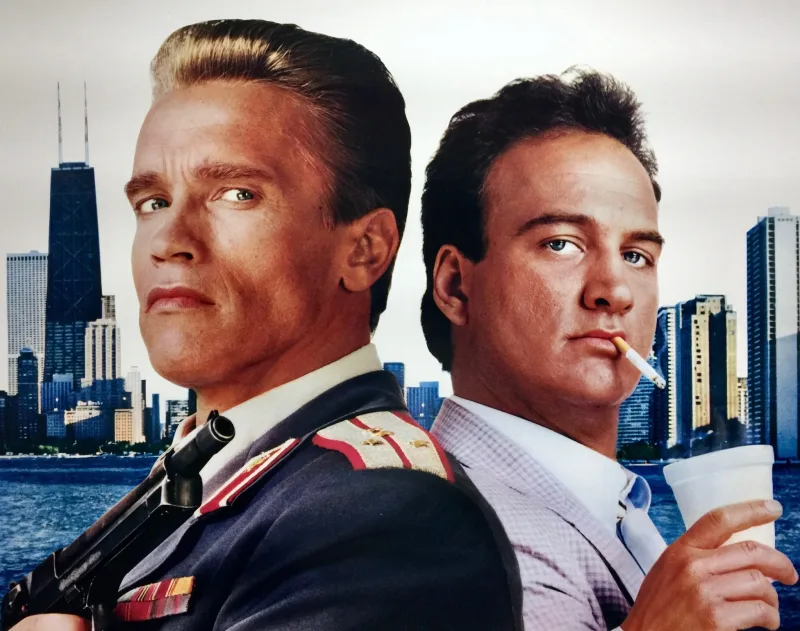


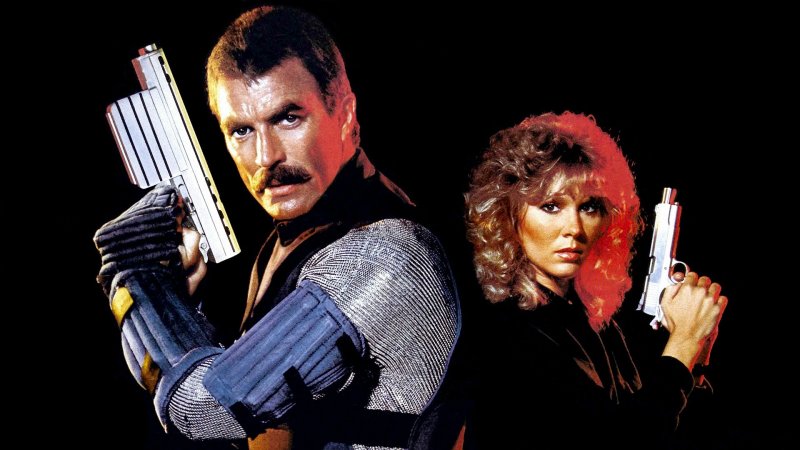






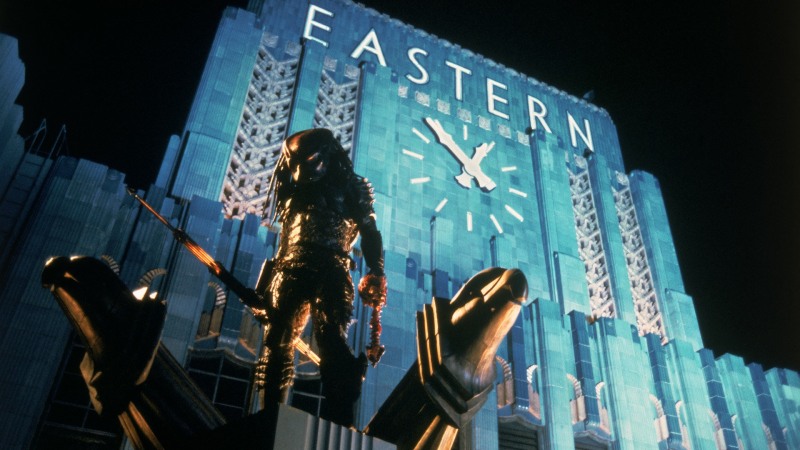
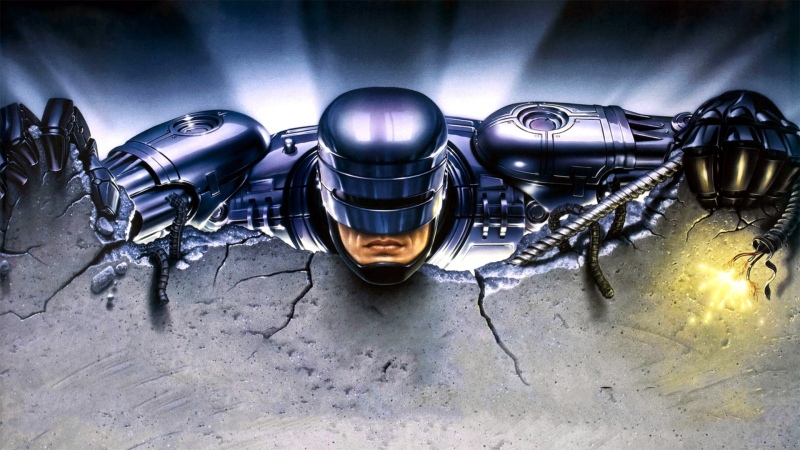








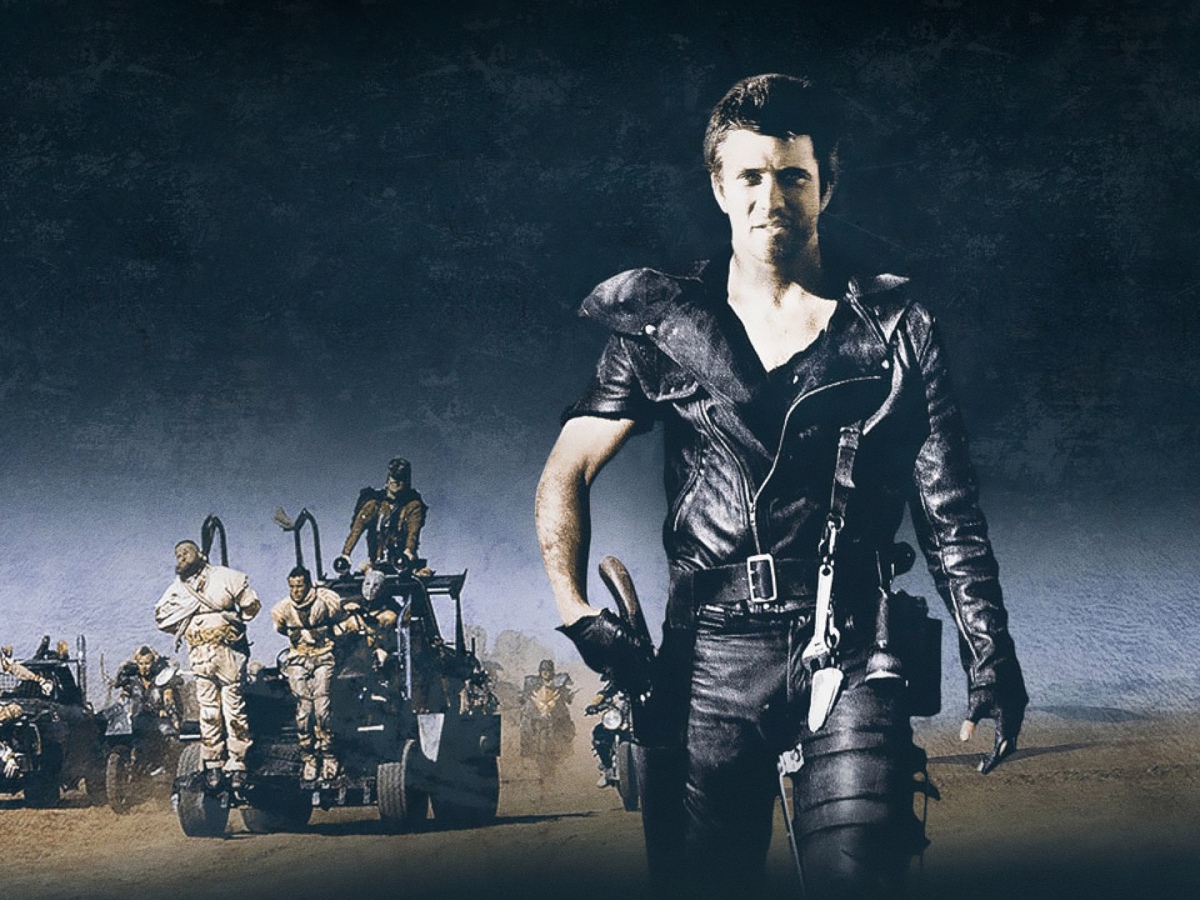

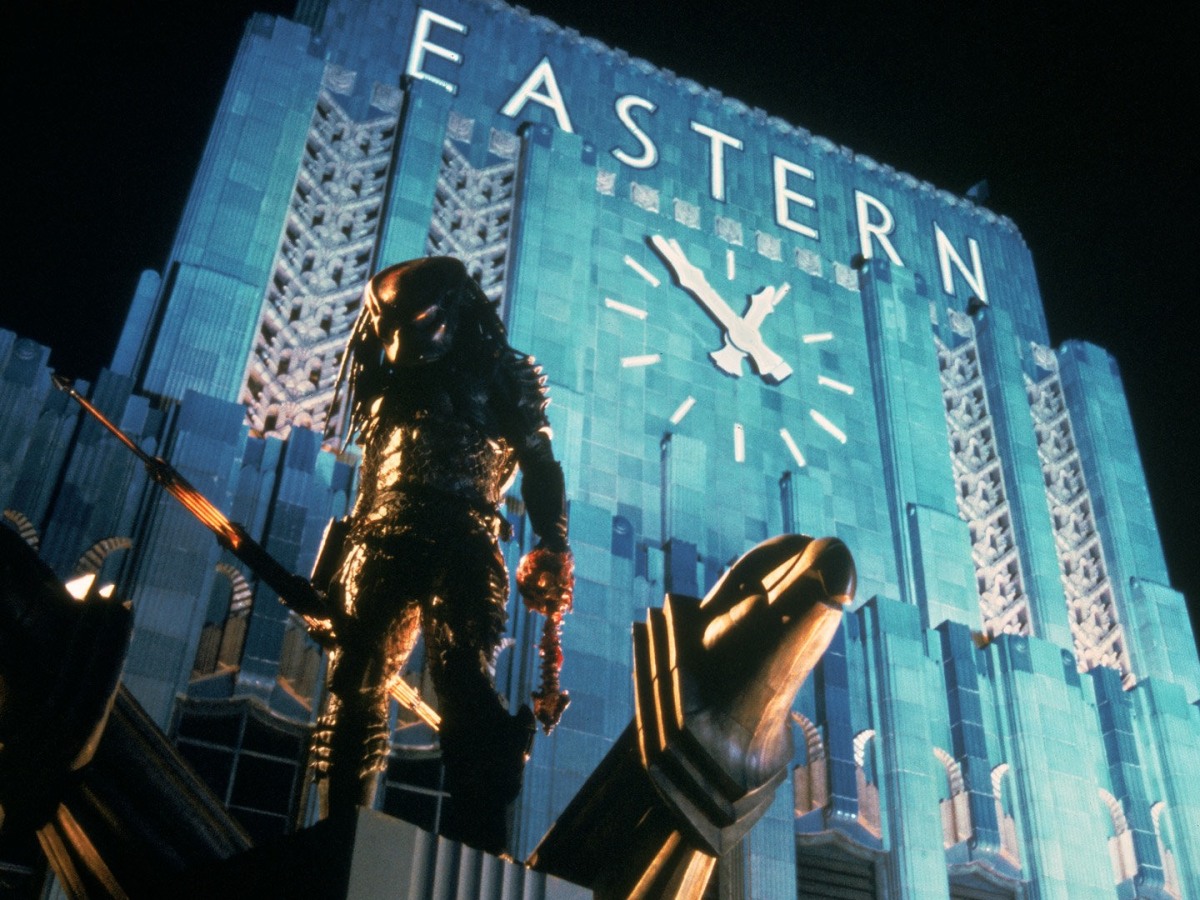





Ha ha, my father was a truck driver (I missed most of his career since Mushroom Trucking Company filed Chapter 11 in April 1985, and I was 7, but I still remember that humongous stick shift). He did things differently though: he delivered strictly local, and wore a sleeveless shirt & tie.
I agree that this concept is totally far out, and if it actually had made money, THAT would be the surprise. However, it was a part of my childhood, I like the trucking connection, I’ve always liked Stallone, and I think the Kenny Loggins “Meet Me Halfway” (across the sky!) song accompanying the film is a good tune.
LikeLike
I can see why you have a connection with this movie then. To be fair, my father wasn’t a trucker but I still have a huge soft spot for this extra thick slice of Golan-Globus absurdity. Stallone was clearly in it for the money and soon departed but it’s just irresistibly brainless fun. This is essentially Canon’s idea of a kid’s movie. I wish they’d made more in this vein.
LikeLiked by 1 person
You know, I thought it was rather kid friendly when I was a kid (then again, I was a pretty bizarre kid), but I do agree that it isn’t all-in as a kid’s movie, trying to appeal to an…arm wrestling crowd? A WWF (which we know Wrestling Entertainment was called back then, but I do love those Pandas for the WWF) crowd? Because if so, then I think the film’s awful thin on that.
I think a kid’s movie that was a full-on kid’s movie that came later was 1989’s “The Wizard”, which is another film I liked then and now, even if it’s just going strictly for the commercial cheddar (still dig the big reveal of “Super Mario Bros. 3” though:-).
Yeah, Cannon Films though, what a ride. Hey, you ever view the Cannon Films documentary “Electric Boogaloo: The Wild, Untold Story of Cannon Films”? I thought that was great.
I feel “Runaway Train” is the best film Cannon ever did; wow, I could view that one over and over again (Leonard Maltin called it “an existential action film”; I totally agree). I guess I shouldn’t be surprised that Akira Kurosawa created the story, as to me it feels like his kind of style, theme, and vision.
Love “Barfly” as well; I’m definitely thankful for Cannon Films and their offbeat, renegade ways; It makes me think of someone like Ed Wood in a later time and with better resources.
LikeLike
Ed Wood and Cannon Films? Now that’s a comparison. It’s one I’ve never considered but so on the mark. I have seen the Cannon documentary and absolutely loved it. You don’t get renegade producers like that anymore, the kind who make movies for the sheer thrill of it without any artistic or sociopolitical pretensions. I hear that Golan made his own documentary about Cannon in response to ‘Boogaloo’, though I haven’t seen it.
LikeLiked by 1 person
I found a BBC Doc on Golan-Globus on YouTube, but that was produced in 1986. Golan’s doc I’d like to seriously check out. Is it called “The Go-Go Boys: The Inside Story of Cannon Films”, because that’s the one I could dig info up on.
A few years ago, I viewed a doc on Orion Pictures, a company not quite as far-flung as Cannon (who is?), but I found their rise and fall pretty interesting as well.
LikeLike